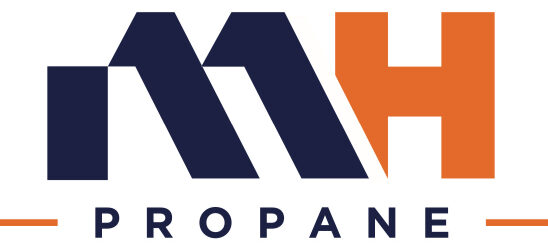What is propane?
Propane is a hydrocarbon (C3H8) and is sometimes referred to as liquefied petroleum gas, LP-gas, or LPG. Propane is produced from both natural gas processing and crude oil refining, in roughly equal amounts from each source. Most propane used in the United States is produced domestically, however, some is imported from overseas. It is nontoxic, colorless, and virtually odorless. As with natural gas, an identifying odor is added so the gas can be readily detected.
What should I do if I smell gas?
If you smell gas, immediately turn off appliances, extinguish any open flames or smoking materials and get out of the house immediately.
Call MH Propane at 801-910-0758.
If it is an emergency situation, CALL 911.
Is propane dangerous to the environment?
No. Propane is an approved, clean fuel listed in the 1990 Clean Air Act and the Energy Policy Act of 1992. Propane is one of the cleanest burning of all fossil fuels. Tests conducted by the U.S. Environmental Protection Agency show that propane-fueled vehicles produce 30 percent to 90 percent less carbon monoxide and about 50 percent fewer toxins and other smog-producing emissions than gasoline engines. Propane also is nontoxic, so it’s not harmful to soil or water.
Do I need a leak test if I run out of gas?
Yes. As luck would have it, most propane customers run out of gas when temperatures are the coldest. No matter what the temperature or how busy we are, if the tank is out of gas, a leak test is required. Being out of gas is considered an “interruption of service”. It may not be convenient for you or us, but it’s the law. If you are out of gas and it is not a result of a failure on our part, we will have to charge a fee for performing a leak test.
What is a leak test?
A leak test is used to indicate any leaks within the propane piping system due to interruption of service or an “out of gas” event. Leak testing tests the integrity of the system plumbing joints and the seal of the pipe joint compound, because one of the reasons that you may be out of gas is, surprise, you have a leak. This is the safety reasoning behind leak testing. Leak tests are performed because they are required by law.
